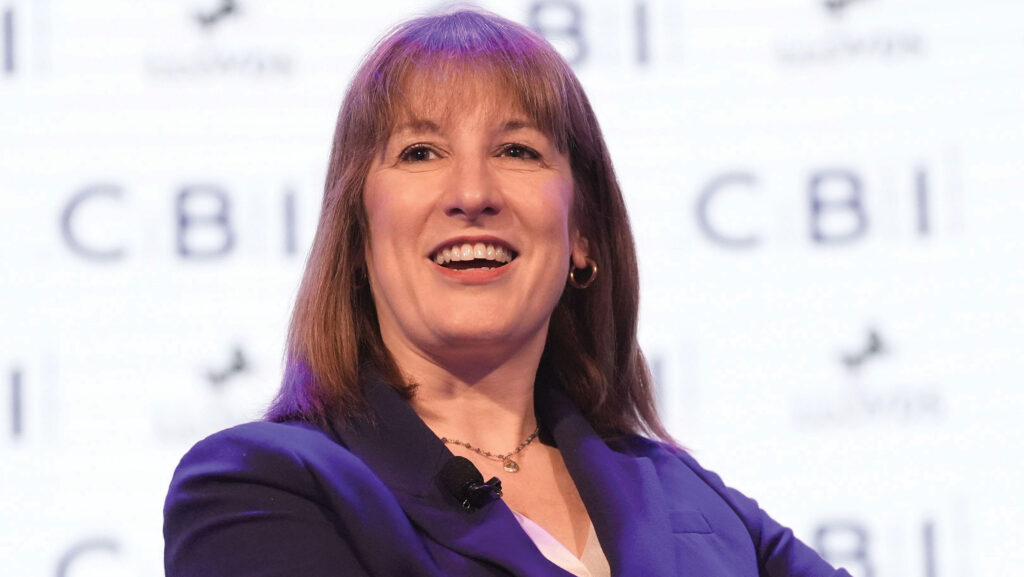Spending Review: Defra funding higher than expected
 Rachel Reeves © PA Images/Alamy Stock Photo
Rachel Reeves © PA Images/Alamy Stock Photo Chancellor Rachel Reeves’ first Spending Review has delivered a better-than-expected outcome for Defra, easing fears of severe budget cuts to green farming and environmental support.
The Treasury settlement for Defra commits to investing an average of £2.7bn/year from 2026 to 2029 in sustainable farming and nature recovery.
This includes £2.3bn a year through the Farming and Countryside Programme and up to £400m via additional nature schemes. While slightly below the current average of £2.5bn (2024–2026), it represents a notable commitment amid wider spending pressures.
See also: Editor’s View: Defra not out of woods after Spending Review
Amid drastic cuts to direct support, funding for Environmental Land Management (ELM) schemes will rise from £800m in 2023-24 to £2bn by 2028-29, reversing fears of deep cuts.
However, no breakdown has yet been provided for how funds will be allocated across the Sustainable Farming Incentive (SFI), Countryside Stewardship, Landscape Recovery, and productivity schemes such as the Farming Equipment and Technology Fund.
In total, £7bn is earmarked for nature recovery during the review period (2026 to 2029), including:
-
£5.9bn for environmental farming
-
£816m for tree planting
-
£85m for peatland restoration.
Defra will also receive £16bn in capital investment, including £4.2bn for flood defences (a 5% increase) and £300m for modernising digital systems such as the Rural Payments Agency (RPA), with AI expected to streamline grant delivery.
Despite this boost, Defra must still deliver at least 5% in departmental savings by 2029 through IT upgrades, reduced contractor reliance, and £144m in efficiency improvements.
Industry reaction
Jason Beedell, rural research director at Strutt & Parker, noted the headline figures obscure real-terms reductions.
“This looks like a 4% cut compared to recent levels,” he said, citing previous commitments of £2.4bn annually. “We need more detail, particularly on how individual schemes like the SFI will be affected.”
NFU president Tom Bradshaw expressed concern that the £100m reduction in the Farming and Countryside Programme means “farmers will need to do more with less”.
He also criticised the government for not reversing the proposed 20% inheritance tax on agricultural assets from April, which the union has described as the “family farm tax”.
‘Devil will be in the detail’ – CAAV
“Trust and confidence have been shaken and this is an opportunity to rebuid,” she added.
George Dunn, chief executive of the Tenant Farmers Association, welcomed the support, but added: “While this is a real-terms cut when adjusted for inflation, we’re relieved the government has maintained support in nominal terms.
“Now we must ensure schemes work for all, especially tenant farmers.”
Lacking ambition
Green groups also welcomed the preserved funding but warned it falls short of what’s needed.
Martin Lines, chief executive of the Nature Friendly Farming Network, said: “Given the challenging economic climate, it’s a relief that the budget for nature-friendly farming has been largely protected. Ministers have listened to our calls to recognise the value of nature-friendly farming and what it can do.”
But he warned that “the challenges facing food production, biodiversity and climate resilience demand far greater ambition”, adding that “without increased investment, we risk falling short of our national commitments and letting down the very farmers ready to lead the transition”.
Joan Edwards, director of policy and public affairs at The Wildlife Trusts, added: “The government has listened to calls to protect nature-friendly farming, but real risks remain due to tight budgets and real-terms cuts amid persistent inflation.”
